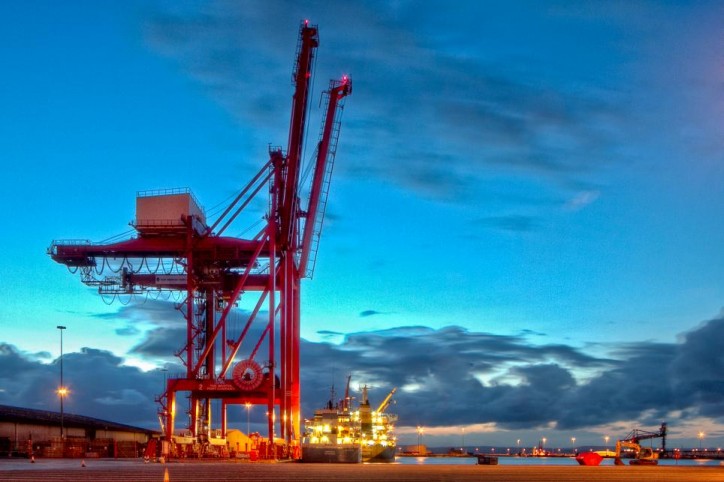The Bristol Port Company has signed a contract with Kalmar, part of Cargotec, to undertake a comprehensive upgrade of one of the terminal's ship-to-shore (STS) cranes. The upgrade project is scheduled to be completed during Q1 2019.

Bristol Port is located at the mouth of the River Avon in south-west England and can handle vessels of up to 130,000 dwt. More than 9,000 people are employed within the dock estate that covers an area of over 10 square kilometers and boasts on-site storage and warehouse facilities as well as excellent connectivity by sea, road and rail. The crane upgrade project concerns a 1988 built STS crane currently operating at the port, manufactured by Japanese company NKK.
The first phase of the upgrade will involve a full strip-down of the crane's existing electrical and mechanical systems. The mechanical components - e.g. sheaves, brakes and gearboxes - will be replaced or modernised by Kalmar, while the electrical system will be completely replaced by Kalmar's consortium partner TES Industrial Systems.
Kalmar crane upgrade and modernisation services are designed to help customers get more value from their existing equipment by improving its performance and extending its operational lifespan.
James Overthrow, Director of Engineering at The Bristol Port Company: "We chose to partner with Kalmar because of their proven track record in crane construction and retrofit projects. It is critical to ensure that our STS cranes remain safe and reliable, and we are confident that working with Kalmar will deliver the best possible results for our business, both in terms of safety and productivity."
Bob van Kampen, Director, Crane Upgrades EMEA North at Kalmar: "STS cranes are a key component in the success of any container terminal regardless of size, so we are pleased to be able to help The Bristol Port Company improve the reliability, safety and productivity of their existing equipment. Thanks to the outstanding technical capabilities of our crane upgrades team, we were able to provide a proposal that meets their needs precisely and keeps crane downtime to a minimum."
Source: Bristol Port